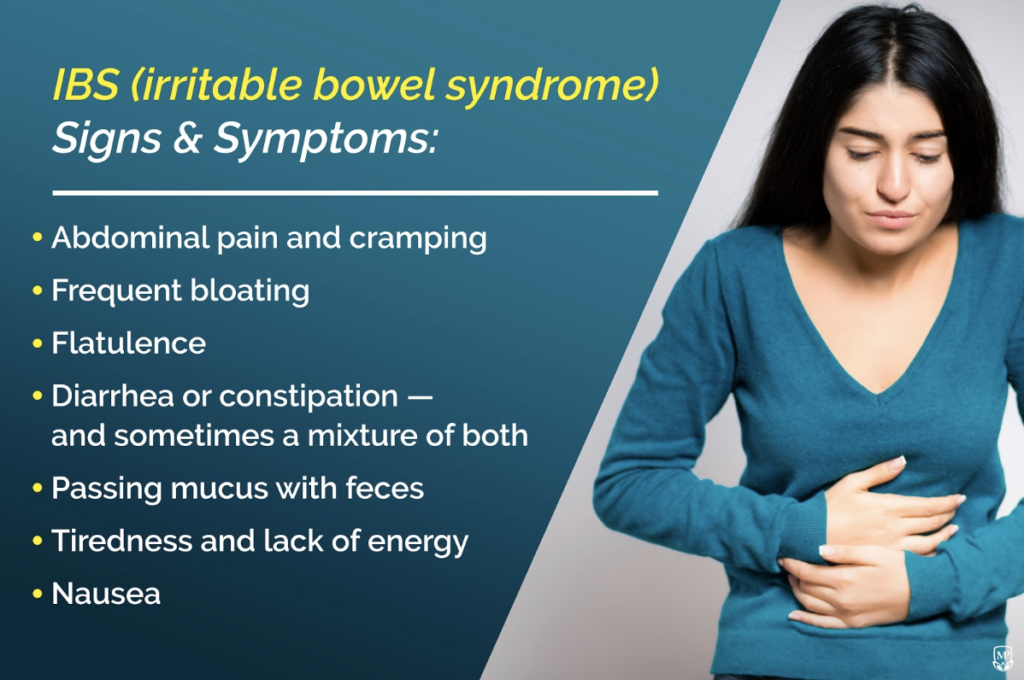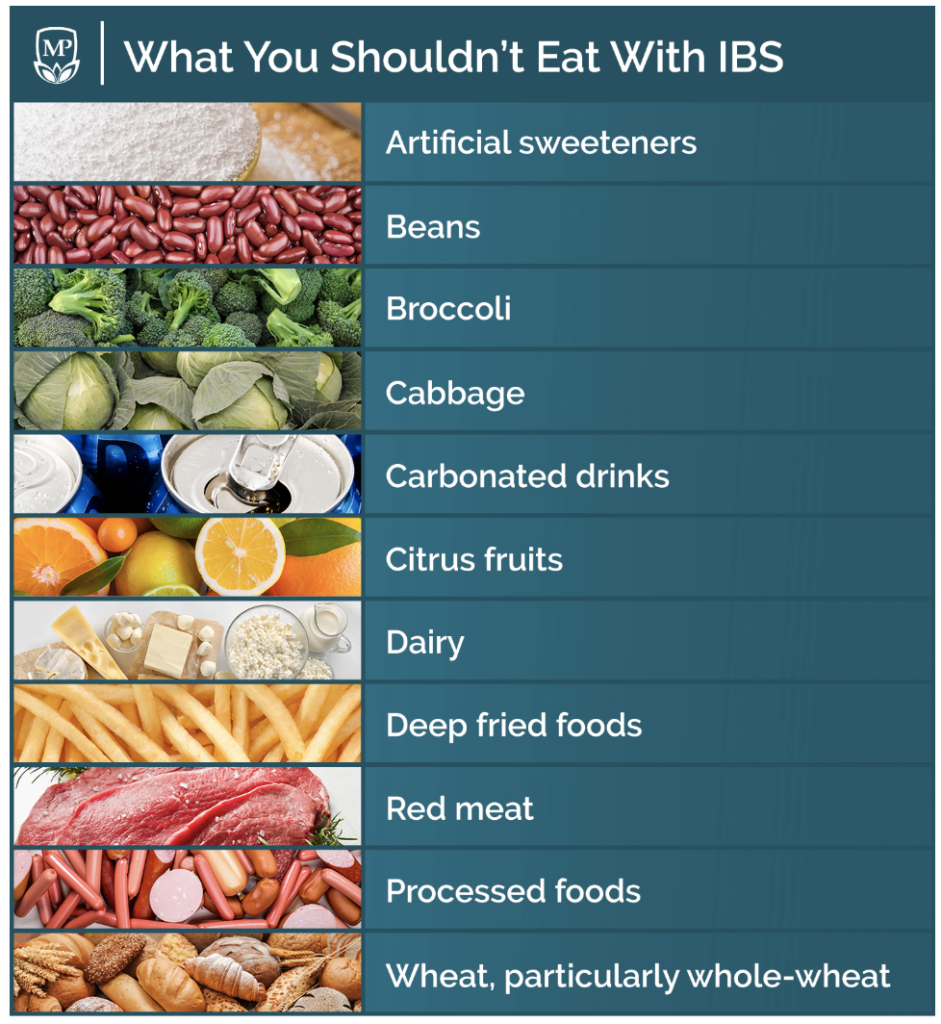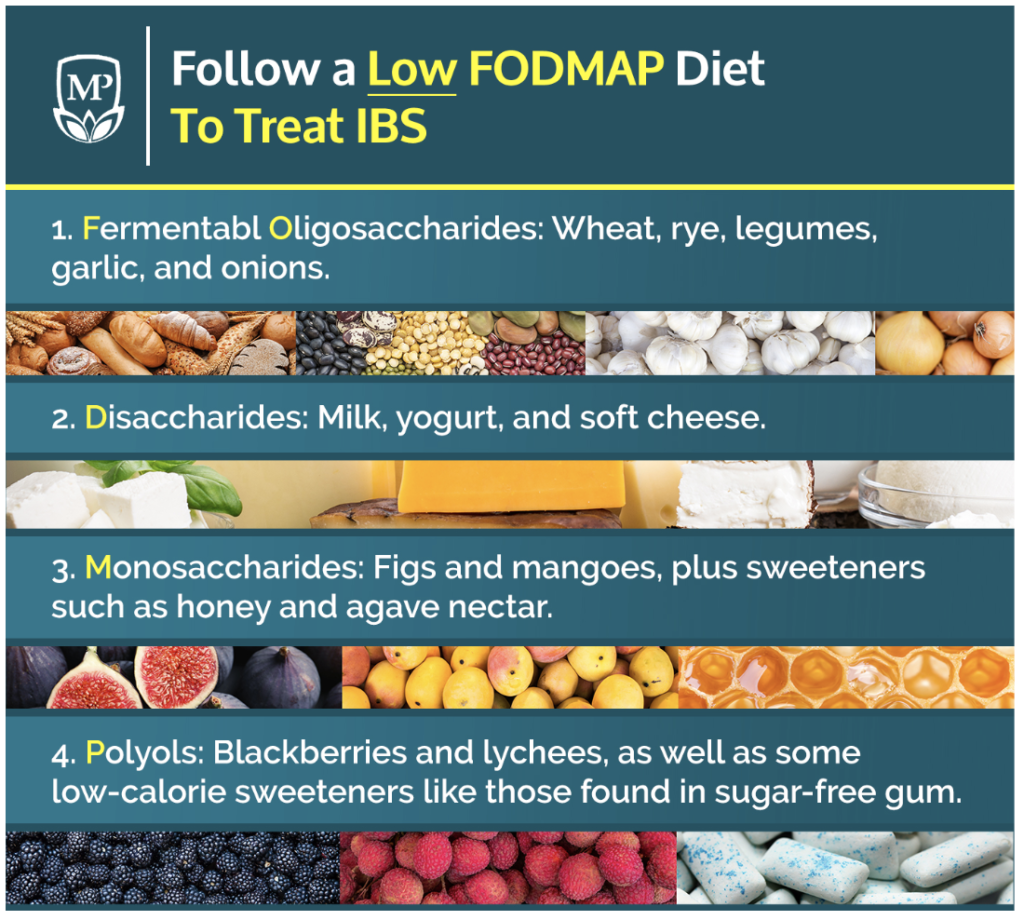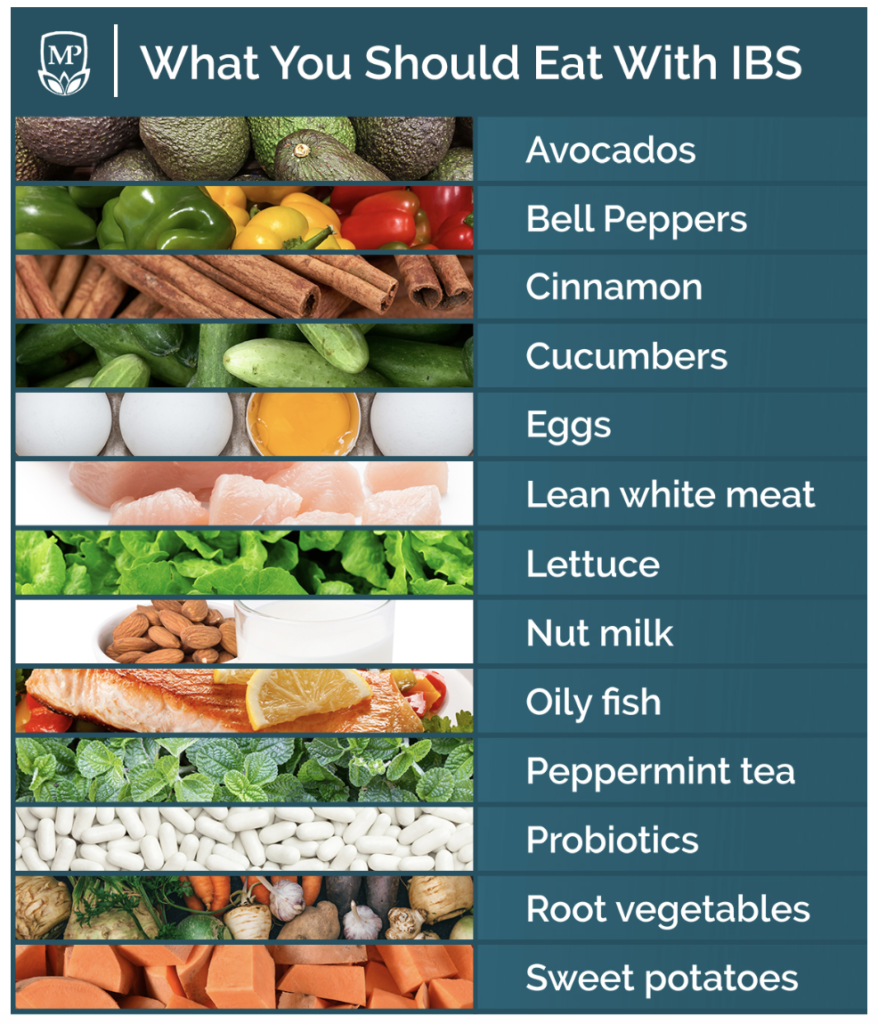Are you suffering from Irritable Bowel Syndrome symptoms? Learn what IBS is, how to treat it and what is the best IBS diet to improve quality of your life.
What is IBS?
IBS (Irritable Bowel Syndrome) is a common chronic condition affecting up to 20% of people. It occurs in the large intestine and symptoms can include all or some of the following:
Diagnosis of IBS
There is currently no definitive test for IBS — although your doctor may ask you to undergo tests in order to rule out other possible causes of your symptoms.
Personally, I was diagnosed with IBS about 10 years ago after suffering from frequent constipation and bloating for most of my childhood and teenage years. I was advised to up my fiber intake, drink more water, and exercise regularly.
What Causes IBS?
Unfortunately, there is no definitive answer for what causes IBS. However, according to The IBS Network, common risk factors include an attack of gastroenteritis, suffering trauma, anxiety, and taking strong antibiotics. Some researchers have said that people with IBS have a specific genetic defect which can be inherited. Women are also more likely to be sufferers of IBS, as it has been linked to the hormones that are secreted around menstruation. Depending on your most common symptoms, different things can trigger your IBS flare-ups, and this includes what you eat.
What is The Best IBS diet?
IBS Diet – What You Shouldn’t Eat With IBS
The following foods have been commonly highlighted as triggers for IBS flare-ups:
Personally, I’ve found that white potatoes, Prosecco, pastries, and steak are my main culprits. As much as I love to consume these, I choose not to eat them regularly in order to keep my IBS under control. I actively try to lead a stress-free life where possible, as any anxiety, upset or anger causes my constipation to rear its ugly head.
Following a low FODMAP diet (which stands for Fermentable Oligo-, Di-, Mono-saccharides, and Polyols) can help you find out what your main triggers are, and then learn how to alleviate your IBS.
Eliminate all high FODMAP foods for two to six weeks, or until your symptoms fade. You can then slowly reintroduce the high FODMAP foods back into your diet and wait to see if any symptoms reoccur. If you have a mild reaction to a certain food, then perhaps you can just eat small, occasional portions. If you have a severe reaction, you will then know to eliminate it for the long run. This will help you figure out what is best for your body and you can then follow a personalized diet that avoids your triggers. The main dietary sources of the four groups of high FODMAP foods include:
IBS Diet – What You Should Eat With IBS
These foods have been commonly highlighted as soothing choices for IBS:
However, there is no one-size-fits-all diet for sufferers of IBS. It’s important to be in tune with your body and use trial and error to find out what works for you personally, and what doesn’t.
See this article on Foods I Rate and Foods I Hate for an in-depth list of suggestions.
Treatment For IBS
Doctors prescribe a number of medicines to treat the symptoms of IBS including laxatives, fiber supplements, anti-diarrhea tablets, and even anti-depressants. The link between IBS and anxiety and depression can be explored through the gut-brain axis. The bacteria in your gut affects the health of your brain and vice versa. As the two are so dependent on each other, it’s important to address both your diet and the thoughts in your mind.
Hypnotherapy and CBT for IBS
A recent study published in the medical journal, The BMJ, involved 558 patients who suffered from IBS and had been undergoing standard medical treatments for a year or more. The patients were split into two groups.
One continued to receive the current standard IBS treatments, while the others were offered eight CBT sessions specifically designed for treating IBS.
A year later, the second group reported significant improvements in their IBS symptoms compared to the first. What’s more interesting is that the CBT sessions were conducted over the phone or online, rather than face to face.
Another study published in the research organization, Iffgd, found that hypnotherapy may help to improve symptoms of IBS such as nausea, fatigue, backache, and urinary problems. Hypnotherapy for IBS involves progressive relaxation, soothing imagery, and sensations. Noted findings from the study were ceased abdominal pain, constipation, diarrhea, and bloating.
Marisa Peer: The Power of the Mind
In addition to founding Rapid Transformational Therapy, Marisa Peer has spent over 30 years transforming the lives of her clients, including people who have suffered from anxiety, depression and a range of physical conditions, including IBS. She offers many powerful treatments, including those you can apply yourself at home, such as books, hypnosis audios, and online courses. Marisa’s techniques enable you to take control of the pictures you make in your mind, to communicate directly with your subconscious, which controls all the systems in your body, including your digestive system. You can create a natural feeling of well-being, boost your immune system, and make feel-good hormones just by changing the way that you think.
You can also consider joining the 21-Day Healthy Living Challenge to take direct action in learning how to make healthier choices to improve your diet and general well-being. The challenge, which runs over three weeks, will include daily training, meditations, and audios all designed to help you overcome your misbeliefs surrounding your diet and health, and rewire your brain to make choosing healthier food, easier, and prevent relapse into negative habits. Click the banner below to find out more and secure your place on the next challenge, starting soon!
Use your imagination to communicate to your body what you want it to do. Imagine your large intestine and colon working like a seamless orchestra. Tell yourself out loud every day, “I have a brilliant digestive system”. Praise yourself every day and you will start to feel better, happier, healthier, and in control.
Read more about healthy foods and how to achieve optimal well-being on Marisa’s blog.








